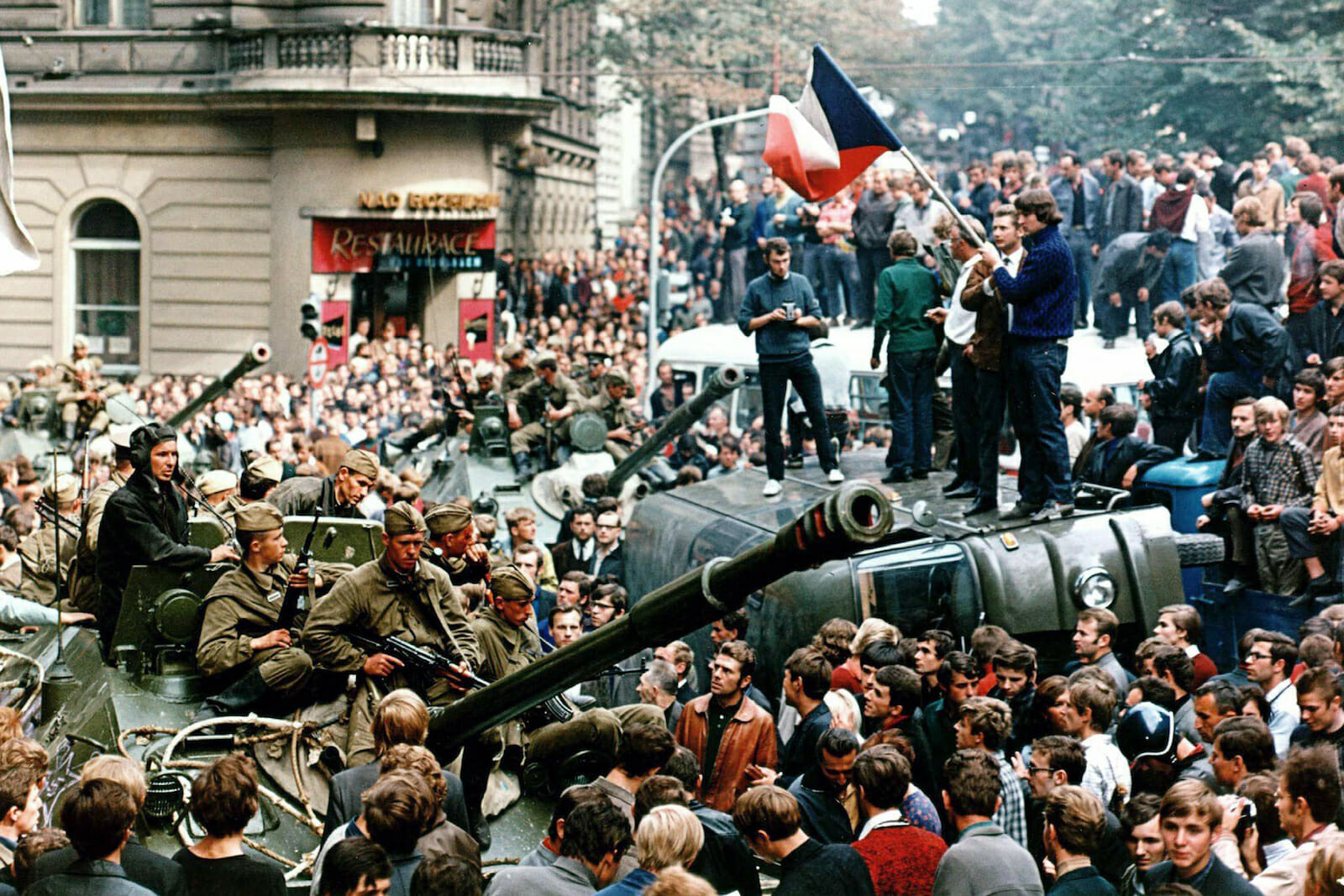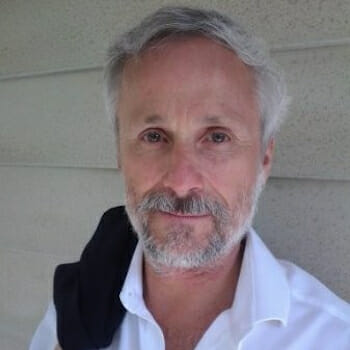
Culture
The Prague Spring, 48 Years Later
August 20th marks the forty-eighth anniversary of the beginning of the Soviet invasion of Czechoslovakia. The Soviet Union crushed the Prague Spring, Alexander Dubcek’s attempt to build ‘socialism with a human face.’ The invasion and subsequent repression were one of the saddest chapters of the Cold War period. Now, forty-eight years later, the Soviet invasion must not be remembered in the United States with any feeling of Post- Cold War triumph, but with sober reflection. The United States was partner to the Cold War, and but five years later, the United States crushed Salvador Allende’s attempt to build socialism with a human face in Chile. General Augusto Pinochet took his place and established a reign of terror. The United States was, just as was the Soviet Union, loath to tolerate any regime beyond its control within the perceived sphere of influence of the United States.
The Prague Spring was not an anti-communist uprising; Dubcek had impeccable communist credentials. He had joined the Party as a partisan in the Second World War and rose in the ranks to become the First Secretary of the Communist Party of Czechoslovakia in January of 1968. Unlike the communist parties led by Josip Tito in Yugoslavia, Enver Hoxha in Albania, and Imre Nagy in Hungary, the Communist Party of Czechoslovakia rejected the line of the Communist Party of the Soviet Union.
As the Hungarian Party had been suppressed by Soviet arms, this loss of the Czech party would mean the Soviet Union’s third permanent loss of a governing European communist party. Ideologically, as well as strategically, it represented a threat to Soviet security interests. The past loss of the much larger Communist Party of China loomed large. In the Third World, the Chinese line and Maoist parties challenged the Moscow oriented parties with strong and even greater animosity than they expressed for the West and Western dominated governments. Soon, the ideological clashes would become armed conflict between the two states in the Zhenbao
Incident in March of 1969. The loss of the Party in Czechoslovakia, like that of the aborted loss of Hungary’s but 12 years before, portended the threat of its neutralization. This threat was even more startling as Czechoslovakia bordered on the Federal Republic of Germany which was allied to the North Atlantic Treaty Organization (NATO) and heavily occupied by three NATO allies, France, the United Kingdom, and the United States, and would split the Warsaw Pact from north to south. Furthermore, it could serve as a corridor for the weapons and troops of the three western occupying powers and more ominous still, the German soldiers of the Federal Republic. As the defiance of Hungary’s Communist Party was put down by the Soviet Army, the Chairman of the Soviet Union’s Communist Party, Leonid Brezhnev, saw the same solution as an imperative in 1968.
On 20 August, 1968, all of Czechoslovakia’s Warsaw Pact allies, with the exception of Albania and Romania, took part in the Soviet mandated invasion. Albania, in a de facto manner, had withdrawn from the Warsaw Pact in 1961. Romania under Nicolae Ceaucescu was pursuing internationally a more independent line, but bordered on three Warsaw Pact allies, but no NATO states, and shared an 813-mile frontier with the Soviet Union. One month after the invasion, Brezhnev enunciated the Brezhnev Doctrine. On one level, it reestablished the ideological principle of the common pact amongst socialist states for the advancement of socialism and workers’ rights superseding national boundaries and legitimized Soviet intervention whenever the common pact was threatened. On another level it adhered to the principle of spheres of interest and tacitly recognized that there were struggles outside of its competence, id est, sphere of interest.
In the United States, Prague immediately became a symbol of repression when at the Chicago Democratic National Convention antiwar demonstrators affixed to a street sign a sign saying, “Welcome to Prague.” The Soviet Union had no monopoly on hegemonic aims and the necessary repression to maintain them.
By 1949, the United States had established what were to be the acceptable norms within its perceived sphere of interest. In 1947, Harry Truman essentially disenfranchised one-third of the Italian electorate and one-fourth of the French electorate through the intimidation, as well as that of United States citizens of Italian descent, to keep their respective communist parties out of coalition governments. Not until the victory of François Mitterrand in France’s 1981 presidential elections, over forty years after the Popular Front government of Léon Blum, were there Communist Party ministers once again in the French government.
Although NATO has touted itself as an institution of democracy, among its charter members are Belgium, France, the Netherlands, Portugal, the United Kingdom, and the United States. When NATO was founded in 1949, four of the countries maintained colonial empires and ruled over the majority of their respective territories without the consent of the governed. The Netherlands was negotiating an end to the Dutch East Indies, the majority of whose territory would be ceded by the end of that year. In 1968, Belgium was eight years removed from the end of the Belgian Congo and France, which had ceded most of its colonies and six years from the eight-year War of Algerian independence. Portugal was and remained a repressive dictatorship until 1974. Furthermore, in 1968, it was waging war on the independence movements in Angola, the Cape Verde Islands, Eastern Timor, Portuguese Guinea, Mozambique, and Sao Tome and Principe. The United Kingdom continued to be engaged in the contested six northern counties of Ireland and involved in the recent unilateral declaration of independence of Ian Smith’s government in Rhodesia. The United States had been menacing Cuba and had over 500,000 soldiers in Vietnam. Greece and Turkey, both of which joined NATO in 1952, subsequently experienced periods of military rule. Today, Cyprus remains divided as the result of events triggered by a coup d’état engineered by the junta in Athens.
In 1974, the Greek junta saw the overthrow of the Cypriote President Archbishop Makarios as a quick fix to its own problems. The planned seizure of power by Nikos Samson of EOKA-B, which militated for enosis, union with Greece, was considered a sure means to rally patriotic sentiment in Greece. Predictable armed intervention by Turkey was certain to make the fate of Cypriot Greeks all the more poignant to Greeks everywhere. Washington’s Secretary of State Henry Kissinger too saw the advantage of putting an end to Makarios’ rule, as the latter had steered a neutralist course in the contested region of the Levant.
Forty-eight years later, the Soviet Union is gone, the Warsaw Pact is gone, and so is Czechoslovakia. Prague remains, so too does NATO, and Aleksandr Putin’s Russia exhibits the same adherence to traditional Russian concerns of a perceived sphere of interests and no hesitation to resort to arms to maintain it. The balance of power, which gained significance after the Treaty of Utrecht in 1713, remains a watchword in spite of the burden and harm that it places on the people in the states under the dominant powers’ spheres’ of interest.
The aspirations of the Prague Spring in 1968 stand in defiance to any power that may seek to destroy legitimate popular rule. The lessons of the Prague Spring remain vital today.

